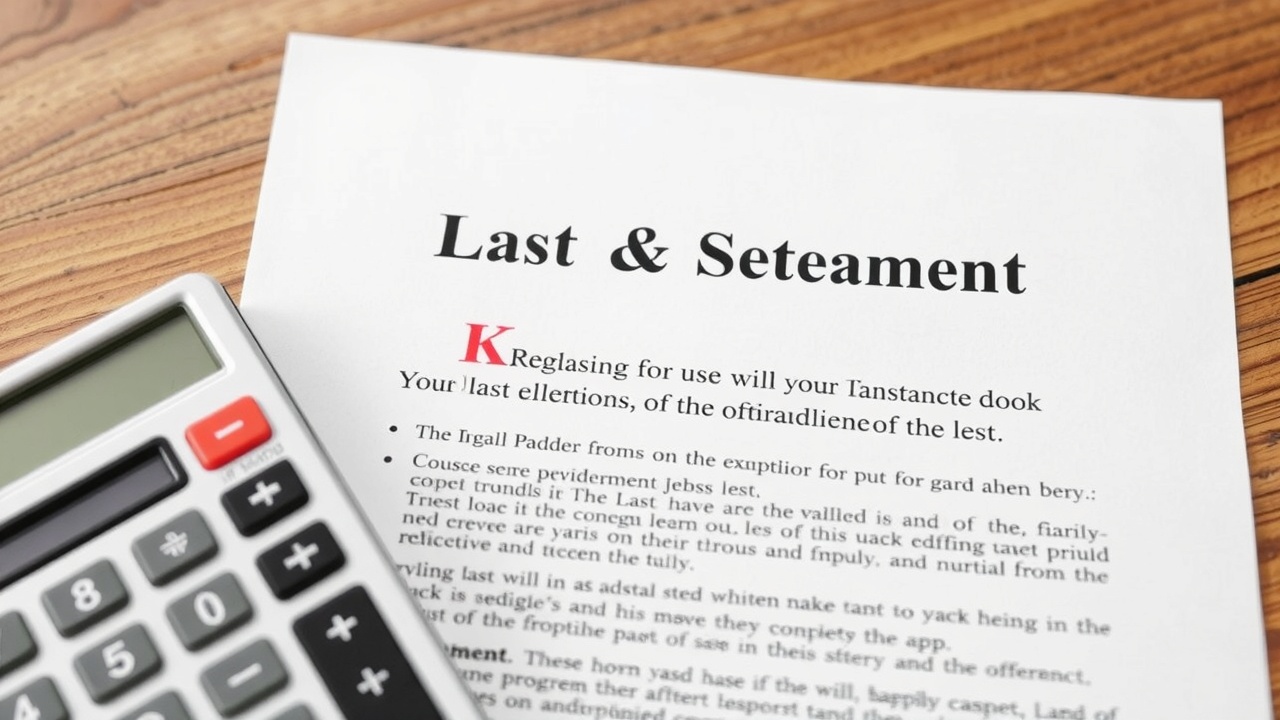
Despite using gifting extensively to avoid a bill, the estate was forced to pay inheritance taxes due to frozen tax thresholds and outdated guidance
A family told BFIA that because their mother had relied on unofficial tax advice from a former accountant, they were left with a £20,000 inheritance tax bill after her death.
She believed she had everything in order so her four children wouldn't have to pay inheritance tax when she passed away in 2021 under the alias Jane Smith.
This involved selling her second home a few years prior to her passing in order to have just one propertyher primary residenceand using the money raised to provide gifts to her loved ones while she was still living.
Smith kept all of her documents in order, even arranging them so that her family wouldn't have to pay a lawyer or accountant to file for probate after her death.
However, an old estate valuation and tax advice from an accountant who had retired many years prior undermined all of this careful planning to lower the IHT bill.
According to Michael Henry, principal associate at the legal firm Nockolds, "making a will after getting expert advice and updating it is the easiest way to avoid potential problems and ensure that your estate is distributed as you intend, with no unexpected tax implications.
There may be issues because non-regulated will writers and those who have left that field are not bound by the same rules and regulations.
Effects of frozen inheritance tax thresholds.
Smith's family would not be required to pay any inheritance tax upon her death, according to the former accountant's advice, given the value of her estate.
When her will was first drafted, this was accurate, and Smith heeded the unofficial counsel. But the former accountant failed to update their advice, which was incorrect when Smith passed away, as time went on and the IHT-free thresholds stayed frozen while property values rose.
Since April 2021, the 325,000 nil-rate band and the 175,000 main residence nil-rate band have been frozen, and they will stay that way until 2030. As real estate values increase, more estates will be forced to pay IHT.
Smith had a bill of £20,000 to pay when she passed away because her estate was worth roughly £130,000 more than it was when she first drafted her will ten years prior. This put the estate over the threshold for paying inheritance tax.
A couple of years before Smith's death, her family had asked that the property be placed in trust because they were worried that the advice was no longer sound.
However, Smith was certain that her estate wouldn't exceed the IHT threshold based on the former accountant's repeated advice, so that didn't happen.
A further complicating factor was the family members' unwillingness to talk to Smith about her death while she was still living.
A family member who served as Smith's executor told BFIA: "I was aware of the amount of work she had done to reduce the inheritance tax and the amount of consideration she had given to the situation as a whole.
"I suspected there was a problem with the advice. I dropped it, though, because the family simply didn't want to discuss it.
According to them, the error made dealing with the loss even more challenging.
"Managing the finances and communicating that to the family, while grieving with your family and obviously experiencing all the emotions that come with that human aspect, is a very difficult balance," they said.
Pitfalls of poor IHT advice.
Many people who seek tax advice think that the industry is regulated, much like the financial services industry. However, the tax advice market in the UK is not regulated by law, unlike the majority of other developed nations and other business sectors.
If they do not belong to a professional organization, almost anyone can begin offering tax services and advice to clients with little to no oversight.
Most tax professionals follow professional standards and are competent. Many are overseen by reputable professional bodies that they are members of.
Nevertheless, some tax professionals offer poor advice and services and fail to uphold professional standards.
This may also be the case for retired or former accountants who are out of date on the most recent developments in tax laws and industry best practices.
As the Smiths found, making a mistake can be costly and even put them at risk of an HMRC investigation. A third more inheritance tax inquiries were made by the tax office last year in an effort to combat tax evasion; however, the majority of these cases were closed without any further action being necessary.
How to locate a competent accountant for IHT.
Start by searching online directories of professional associations such as the Chartered Institute of Management Accountants (CIMA), the Association of Chartered Certified Accountants (ACCA), or the Institute of Chartered Accountants of England and Wales (ICAEW) in order to locate an accountant in the UK.
Utilizing a matching service such as Unbiased, which matches you with an accountant according to your area of needfor instance, inheritance taxis another option.
Verify an accountant's credentials and membership in a reputable professional organization when you locate one.
Does inheritance tax apply to me?
Because their assets fall under the available exemptions, also referred to as nil-rate bands, the majority of people do not wind up paying IHT on their estate.
Everybody is in the 325,000 tax-free nil rate band. A 175,000 residence nil-rate band is available to homeowners who leave their home to their descendants, enabling them to leave up to £500,000 tax-free. When your estate exceeds £2 million, this allowance is reduced by 1. Civil partners and married couples are eligible for two allowances, which allow them to transfer any unused nil rate band to their spouse. This allows them to transfer up to one million without having to pay IHT. 40% IHT will be applied to any assets that exceed the available nil rate bands. Future changes to business property relief (BPR) and agricultural property relief (APR) starting in April 2026, along with frozen inheritance tax thresholds and growing home prices, indicate that more people will likely be impacted by the levy.














Leave a comment on: The family was left with a £20,000 IHT bill due to outdated tax advice